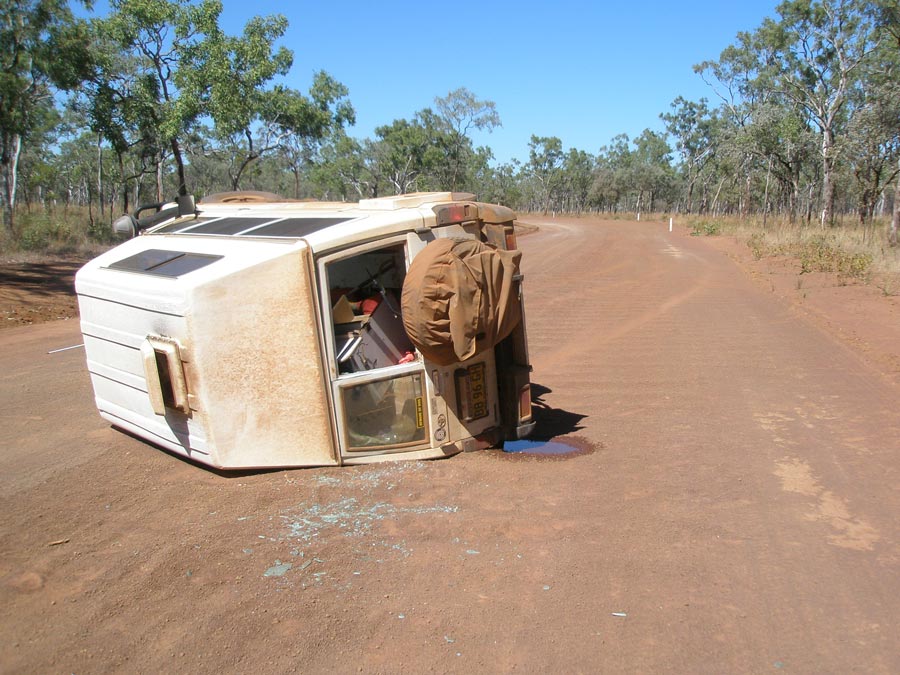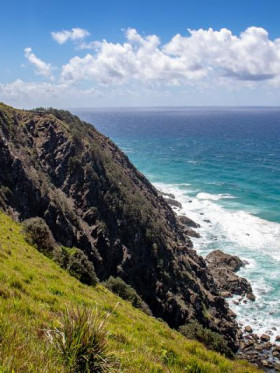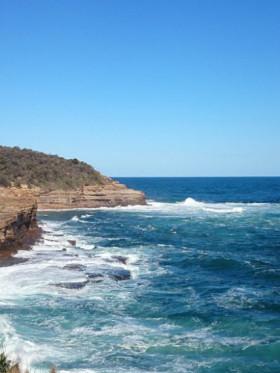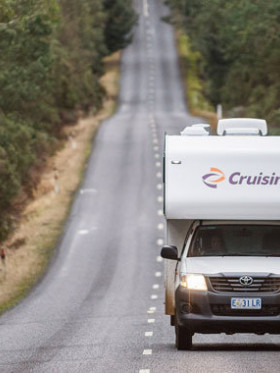Campervan and Motorhome Insurance can be a complicated subject and we want you to be prepared for your trip-of-a-lifetime, so we’ve put together this comprehensive guide about campervan and motorhome insurance for Australia and New Zealand.
Warning!
Insurance is an extremely boring topic - I get it.
But it is the 2nd most expensive thing behind the renting of the vehicle and if you get it wrong it can cost you THOUSANDS!
It's boring to read about it, (it's boring to write about it too), but you need to "get" this or you could be out of pocket A LOT!
Plus there's some tips on how you can keep the price down thoughout the article so don't skim.
Right. Onward and upward.....
Renting a campervan or motorhome in Australia or New Zealand can be a lifelong road-trip dream for many people, so don't let unexpected fees and large security bonds ruin your adventure.
Knowing what’s what when it comes to making sure you are covered should anything go wrong is ultimately your responsibility.
Be prepared and go in with your eyes open, or you could suddenly find your dream road-trip is a financial road accident.
Don’t Campervans Already Come With Insurance?
 When you rent a campervan in Australia, a mandatory third-party insurance is automatically included known as ‘Standard Insurance’.
When you rent a campervan in Australia, a mandatory third-party insurance is automatically included known as ‘Standard Insurance’.
This doesn’t actually cover any damage to your vehicle if you are in an accident that is your fault, and only covers injuries to other people.
With no damage repairs included in the insurance, you are responsible for repairs to your campervan.
You’ll also be responsible for:
- Damage to third party property
- Towing and recovery costs
- Theft, fire, break in or vandalism
- Damage by a third party if fault cannot be claimed
- Vehicle rental costs while vehicle is not in use (demurrage)
This is why rental companies ask you for a bond, so that if something does happen while you are on the road, they have your funds available to pay for fixing the vehicle and getting it roadworthy again.
This is actually no different from a rental car company.
The Deposit Bond Gonna be HOW MUCH!?
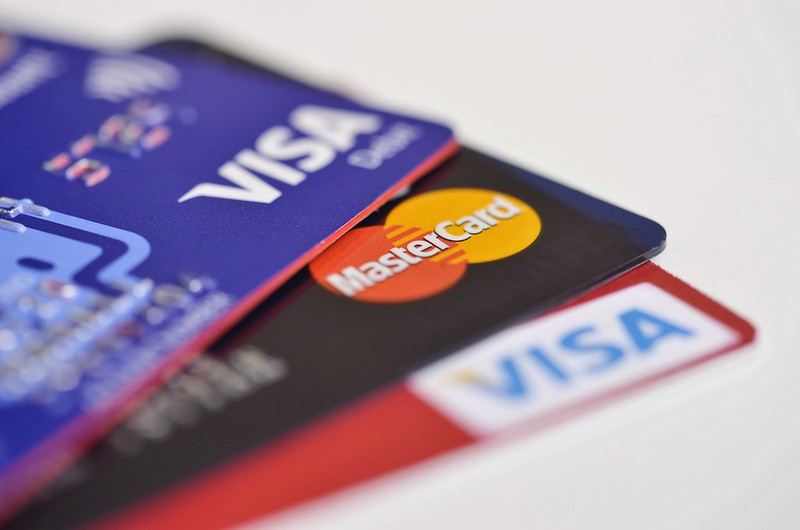 Most of the campervan rental companies require you to debit the full amount of the bond from your credit card when picking up the campervan.
Most of the campervan rental companies require you to debit the full amount of the bond from your credit card when picking up the campervan.
That’s money actually LEAVING your credit card.
This can be up to:
- $10,000 for a 4wd vehicle
- $7,500 for most vehicles but can go as low as
- $3,500 for some of the discount companies.
Additional to that, there will be an 'admin' fee that will cover the cost of the credit card fee from the bank and in some cases, like Diners Club or American Express, be well in excess of the fees actually charged by the bank - this is non-refundable fee.
So, taking a standard $7500 bond with a 2% admin (credit card) fee means $7650 is coming off your credit card and $150 of it is never coming back.
Again, this is no different in principle to what the car rental companies do, it's just that the numbers are bigger.
I have a car rental coming up next week and the bond is $4,000.
Consider that the car is worth $25,000 new (I looked it up),
Compare that price to a brand new 2 person campervan being $80,000 and a 4 berth motorhome is $150,000 and you'll see that a $7,000 bond on a $80k van is a smaller percentage of original price that $4,000 bond on a $25k car.
Related: Compare costs of car hire and hotel stays to campervan hire
Holey Smokes! Is There Any Way To Reduce The bond?
Having thousands of dollars taken off your card when you’re already spending a good chunk of cash on airfares, your daily campervan rental charge, food and entertainment can make things a little tricky for some people.
Campervan rental companies realize that not everyone is flush with cash, and rather than having to sell a kidney, they give you the option to reduce the bond amount by taking out an additional insurance package on top of your daily rental charge.
Normally the campervan hire company will provide 2 or possibly 3 tiers of options to reduce the bond.
Now you know you are already up for an additional $150 non-refundable admin fee on the full $7500 bond so reducing the bond might be worth it depending the length of the journey.
What are the options?
Options change company to company, but you are likely to see any 2 or 3 of these offered.
Option 1 - Budget
A cheaper package will normally reduce the excess (and therefore the bond) by around half to 1/3 of the original amount. This could mean paying $30 per day to get your bond down to around to $2500.
Option 2 – More expensive
A more expensive option will reduce your bond to around $500 or nothing for $45 per day. If your bond is reduced to $0 then you’ll still have an imprint taken from your card for incidentals. Usually this option is known as being the more comprehensive option.
Option 3 - All Inclusive
Some rental companies offer an insurance pack which also includes extras that you might need on your road trip like GPS, camping chairs, a BBQ and child seat.
This might seem like a good option as usually the bond is reduced to $0, but it can cost you around $70 a day more.
Make sure to look at the details closely of what is included, and if you really a getting a good deal.
It might work out cheaper to have one of the other insurance policies and rent or purchase things you need separately.
Overall I am not a fan of the inclusion of chairs and tables so, personally, I don't recommend this.
It is just an incentive for the campervan company to buy the cheapest brand of items possible and we have numerous testimonials to this effect in our user ratings area. Renters are disappointed in rickety and broken equipment. But every company is different.
Having different options to reduce your bond is not an unusual system as most car rentals around the world do it.
But in the campervan world you are looking at paying a lot more per day to reduce the bond.
The campervan might only be costing $50per day, so you can be doubling your rental cost.
No car company in world charges that for insurance!
Why? Because cars generally cost 10’s of thousands of dollars and campervans and motorhomes start in the 100’s of thousands range.
If you are hiring a campervan for a lengthy period of time, sometimes the payment is capped after a certain amount of days (commonly 50).
Remember That Every Company Is Different
 Since every campervan rental company has different offerings it’s difficult to give exact figures here and let you know how much you will have to pay to reduce your bond.
Since every campervan rental company has different offerings it’s difficult to give exact figures here and let you know how much you will have to pay to reduce your bond.
The numbers provided here are based off the 2 largest campervan rental companies in Australia and New Zealand, that between their various fleets account for about 80% of rentals in those 2 countries.
The numbers get smaller as you start renting with companies that deal with the budget and youth markets, but at the same time the quality of the campervans rented also diminishes.
Also, it’s worth pointing out that companies call their insurance packages by different names such as 'Excess Reduction' or ‘Liability Reduction’, or may have more funky names like ‘Stress-free’.
Read, read, read the terms for what you are covered for.
Does Campervan Insurance Cover Everything?
Just like a travel or car insurance policy, campervan insurance does not cover everything even if you are told it is comprehensive.
The items you will most likely not be covered for:
- Tyres
- Windscreens
- Overhead or underbody damage
- A submerged vehicle
- Committing an offense while driving
- Colliding with an animal (highly possible in the outback of Australia!)
- Your belongings in the campervan
Sometimes you can purchase an add-on to your insurance for things like windscreens or tyres if you want these to be included.
However, this is going to mean more money to lay out per day, so it might be worth looking at another company that will include these.
Before signing on the dotted line, make sure to check the exclusions so you know what you are and aren’t covered for.
Do I Absolutely Have To Take Out Campervan Insurance With The Rental Company?
Not at all!
You do have a few other options to take into consideration.
3rd Party Insurance
This is often considered the best "other option" when it comes to taking out insurance by many, including myself and this is what I tend to do in most hires.
For the record, I use RentalCover.com.
They have an office based in Australia for claims and customer service which I like, their rates are good, their inclusions are extensive and they specialize in campervan and motorhome hire.
By taking out 3rd party insurance, the insurer will pay the excess required by the rental company back to you if you get into an accident or repairs need to be made to the vehicle.
There are many companies that offer this, and it’s usually much cheaper than the options provided by the rental company.
To give you an idea, you could get a policy at just $15 a day with $0 excess and much better coverage compared to paying $30-$50 a day.
Usually you’ll be covered for things like:
- Key loss/replacement
- Theft, fire and vandalism
- Single and multiple vehicle accidents
- Vehicle repairs including tyres, roof, underbody and windscreens
- Damage to other vehicles
- Administration and loss of use fees
Here's how it works...
Jo rents a campervan and decides to take out 3rd party insurance, not the insurance with campervan rental company.
At pick up, the rental company tells her the bond will be $7,500 or she can reduce it by taking out extra insurance with them.
They also remind Jo that that extra insurance doesn't include windshield and tyre and there is another extra insurance available for that.
Jo refuses these because she already has cover with her 3rd party insurer like RentalCover.com
The campervan rental company doesn't care that she has cover elsewhere, even if she shows them the papers, their bond reduction only happens when you take out insurance with THEM.
Jo has to put down the $7,500 for the deposit.
Jo has an accident by running in to a tree branch. It is her fault. She damages the overhead and the windscreen.
The campervan hire company is now going to keep her bond of $7,500 until they can determine the cost to fix, which surprisingly will cost $7,500. Goodbye bond.
Had she had the $30 pd extra insurance with the campervan hire company, she wouldn't have been covered anyway as it is single vehicle accident, overhead damage and windscreen damage. Goodbye bond anyway and $30pd
Jo is not stressed. Her 3rd party insurance covers her for windscreen and overhead damage so when they keep her bond, she just puts in a claim with the 3d party insurer for $7,500 and they give it back to her.
She has no excess on that, so she is given the whole $7,500 by her 3rd party insurer.
In this scenario she is out of pocket the cost of the insurance ($15pd instead of $30 with campervan hire company) and she is out of pocket the transactional/admin costs of depositing the $7,500 from her credit card with the campervan company. Approx. $150.
The overall message is that 3rd party is better coverage and cheaper, but it is less convenient (gotta buy it before you get to the pick up counter) and has a bigger cash flow problem.
Can you cash flow the full bond deposit on the campervan ($7,500) for the full rental period and a couple of weeks after until they return it?
Travel insurance
One way that you can get around taking out separate campervan insurance is by having a travel insurance policy that will cover your excess.
Not all travel insurers offer this but check what is included under ‘vehicle rental excess’.
Often it’s just cars so read the T’s & C’s of your travel insurance carefully, but some do cover campervans under their comprehensive policy, or you may be able to do an add-on.
Also check on the excess amount that your insurer will cover.
$5,000 or $6,000 is a common amount, but it is possible to increase this up to $8,000 which will cover your bond should it be taken to cover damages.
You will need the coverage of the travel insurance to be equal to or above what the bond is on your campervan or you could be out of pocket in case of an accident.
Insurance from your credit card
With many credit cards now offering insurance to its holders as long as they book their travel using the card, it’s possible that you may be covered for your campervan excess.
However, while rental vehicles may be included, this usually means standard cars.
If your card does cover rental vehicles, check the fine print or call your provider to check whether the size of your campervan complies with the requirements.
The Downside Of 3rd Party Insurance Options
While these options may sound good and a cheaper way to do things, they are not necessarily the right thing for everyone.
First, by not taking out the extra insurance with the campervan rental company, you will have to cash up the full bond money, in our example, $7500 bond and get charged a $150 admin fee.
And that will leave your credit card.
Next, if you damage the campervan, the rental company will keep all that money until such time they say they know the full cost of the repairs, which miraculously come in at $7500 or more.
You are liable for these costs, and since the company has your bond, they will keep it to use to pay their repair people.
So then you will need to put in the claim to your travel or 3rd party insurer for the fact that the campervan company kept all the bond money.
Don’t be entirely put off this concept though.
If the campervan hire company you have chosen has a bond of $8,000 or less, this kind of insurance will cover you for more options at a cheaper daily rate.
You just have to be able to cash flow the fact that while on the road-trip you won’t have that money available to spend.
Like all things, there are plenty of deals on the market so shop around for 3rd party or travel insurance companies that will cover your rented campervan experience.
That is, if you do have the funds for the bond upfront and are ok to be without it for a while.
Our recommended 3rd party insurer in Rentalcover.com
When Do I Get My Bond Back?
 If you have paid a bond, you’ll be wanting to know how soon you can get that money back, especially if you had to dig into your house deposit or borrow from your parents.
If you have paid a bond, you’ll be wanting to know how soon you can get that money back, especially if you had to dig into your house deposit or borrow from your parents.
Even if you don't have any kind of accident with your campervan while it is under hire, there is now an unfortunate reputation that the bond doesn't come back on to your credit card as quick as it went off it.
In general, don't expect it back for 2 weeks.
The legitimate reason for this is that you may have incurred speeding fines or road tolls on your trip.
In this modern age of cameras everywhere you're photographed registration plate means the fine will make its way to the head office of your campervan rental company.
They are holding on to your bond to allow for this process to take place and so they can take the money out of your deposit both for the fine and the admin fee they are going to charge you for them having to pay the fine on your behalf.
This is fair enough, as it is unlikely they are going to get the money out of you any other way.
The Police don't just let them off because it was a renter driving the campervan so the company will still have to pay the fine if they can’t get you to pay it.
Now, the unfortunate word that we hear about here is that the bond takes more like 4-5 weeks to come back and that the less legitimate reason is so that the campervan company can sit on the money and earn interest.
We're not saying that we agree with this rumor, but there is a lot of chatter about it.
Anyway, be prepared to be without your money for quite a few weeks after you return the campervan.
How To Work Out The Right Insurance Option For Your Road Trip
 With many options when it comes campervan insurance, it’s important to take your time and work through what is on offer and what works best for you.
With many options when it comes campervan insurance, it’s important to take your time and work through what is on offer and what works best for you.
1. First decide with your traveling partner or buddies if you are able to afford to pay a bond up front. If you can, then you can consider 3rd party insurance or travel insurance coverage.
2. Find a vehicle that you are interested in. Using a comparison website like HitTheRoad allows you to put in your dates and destination and have numerous options pop up to choose from. We also give an indication of insurance or excess reduction packages on the booking page.
3. Work out the extra cost per day to take out insurance with the rental company. Can you afford it the amount for reducing the bond to $0? Or do you need to reduce the bond by half and have a less daily cost? Make sure to discuss this with your fellow travellers so everyone is aware of costs and liability.
4. Whether you choose to take out insurance with the rental company or with a 3rd party insurer, make sure to thoroughly read the policy wording/contract to understand what you are and aren’t covered for. You may want to look at a few different companies to compare details.
5. If you are happy with your decision, go ahead and get booking!
Conclusion
The insurance system is not geared in any way to favour the renter.
The excess reduction packages will strike most renters as highly priced and a money grab after backing the renter into a corner if they don't have $7500 cash to spare.
The amount of coverage is limited even if you do take it out and there are often caveats on how a campervan company can get out of it.
However, each campervan hire company's specifics are different so make sure you READ THE TERMS AND CONDITIONS of your chosen company.
It’s worth considering having additional coverage in the form of travel insurance that has hire vehicle coverage or take a look at 3rd party campervan insurance
After that you can still take out the excess reduction of some sort if you don't want $5000-$7500 of your money sitting with someone else for 2 months hoping that one day it will find its way back to your account.
But the best advice out of all this is DON'T CRASH THE CAMPERVAN.
By Tim Ahern

